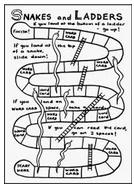2024-03-12
More from Net Zero Watch - or, to dig a little deeper, from the Royal Society, no less.
They have uncovered a problem with the modelling of methods to deal with the intermittency of "renewables". Yes, it's odd that isn't it? But it's becoming almost routine rather than unprecedented to find problems with "the modelling" these days.
I suspect that because modelling is (or can be) rather complex, the public has a tendency to consider it something that scientists do and it must therefore be "scientific" - but that is an error. It might reflect science if done well, or it might just reflect the prejudice and/or error of the modeller. And if the modeller is modelling something that isn't fully understood in the first place, well ... the result isn't likely to be very close to useful.
In this case, they apparently based the model on a minimal real-world climate/weather dataset for a single year, assuming that all other years would be similar - an error that would be unworthy of an undergraduate, let alone a senior government department charged with steering the nation's energy policy into the uncharted waters of Net Zero.
Where was their quality control?
Still, you would think that some of the report's recipients might have noticed that something was adrift, but perhaps Sir Humphrey was elsewhere that day.
(7 minutes)
Like / Dislike this video here.



